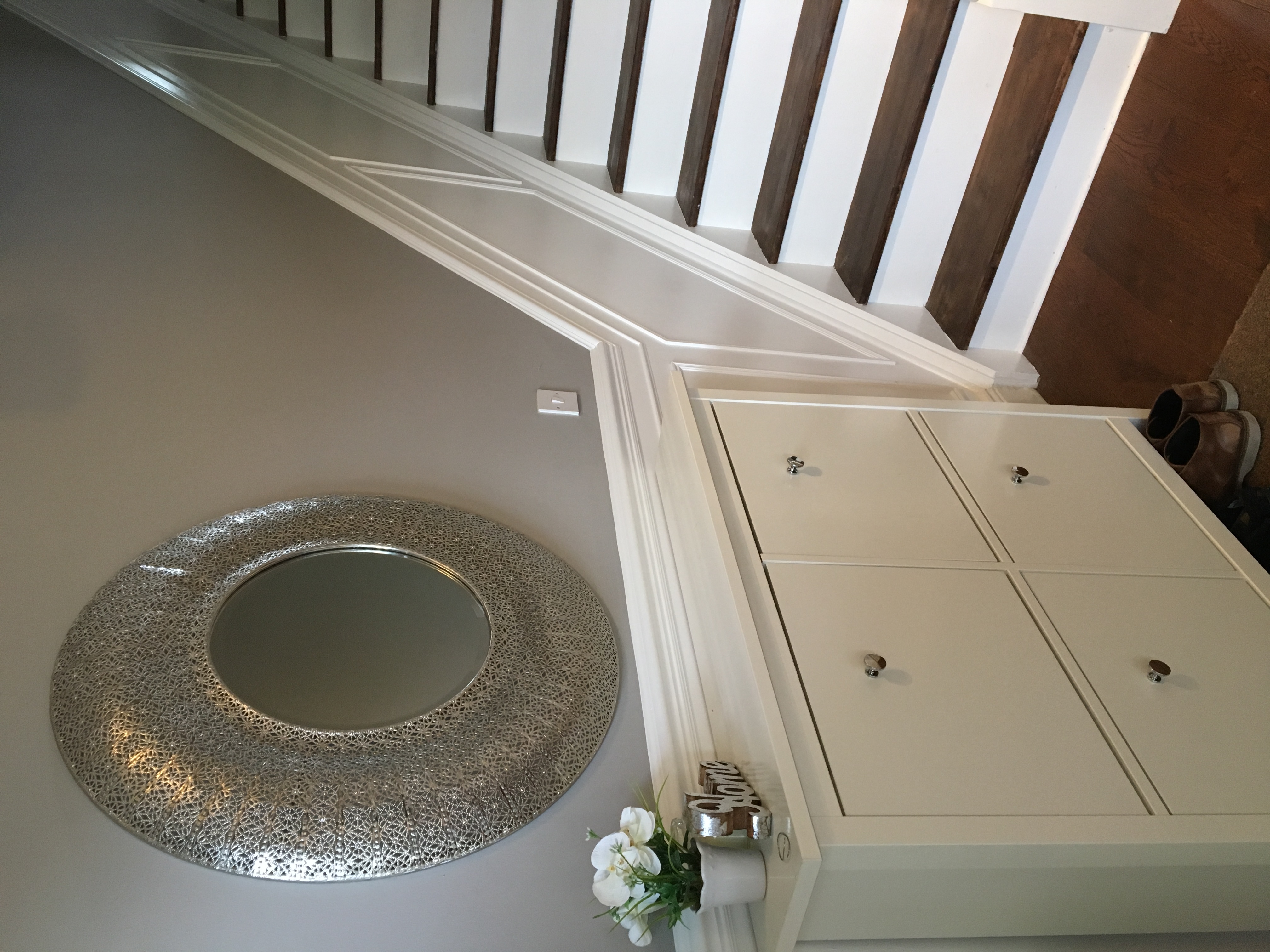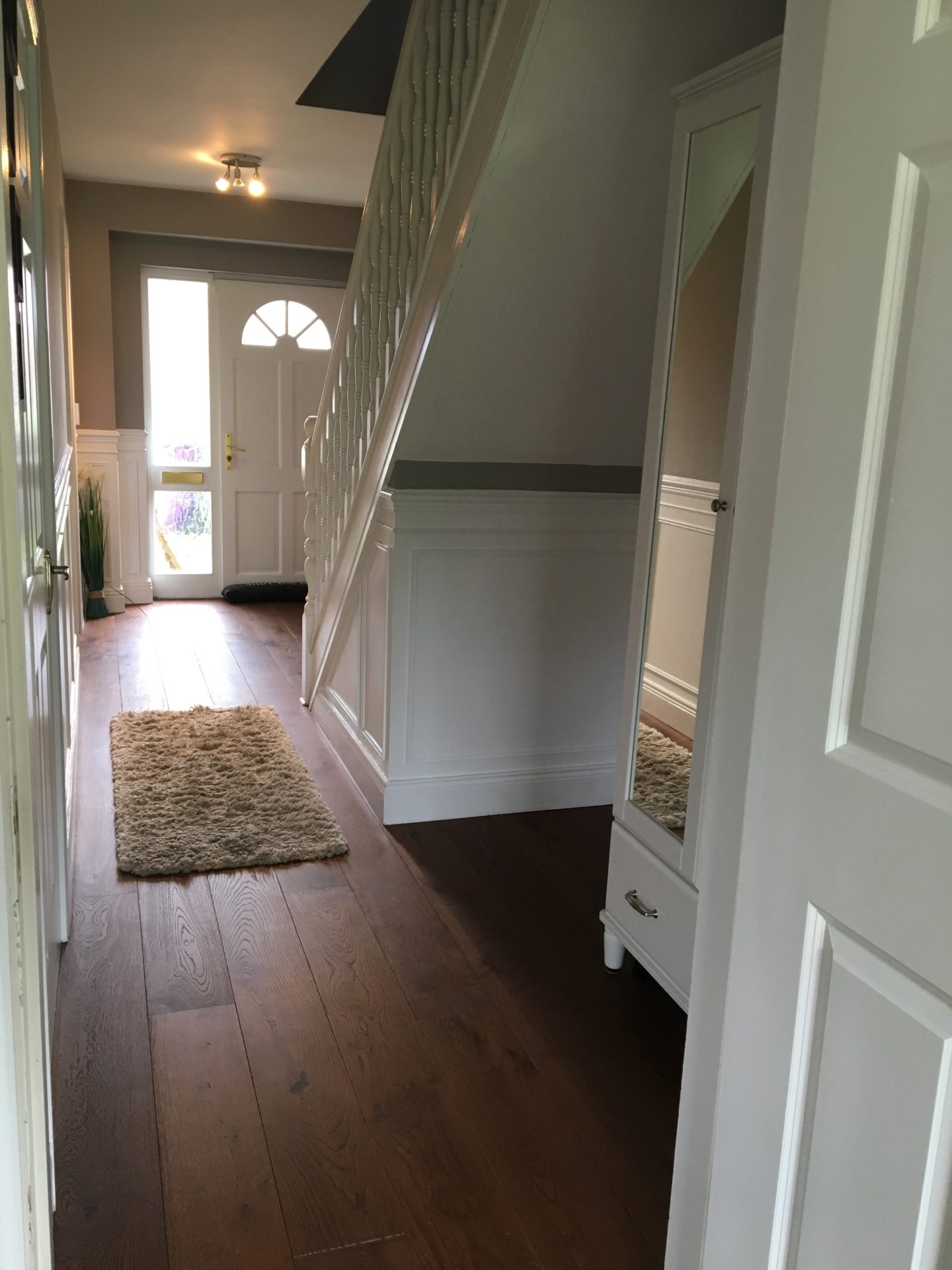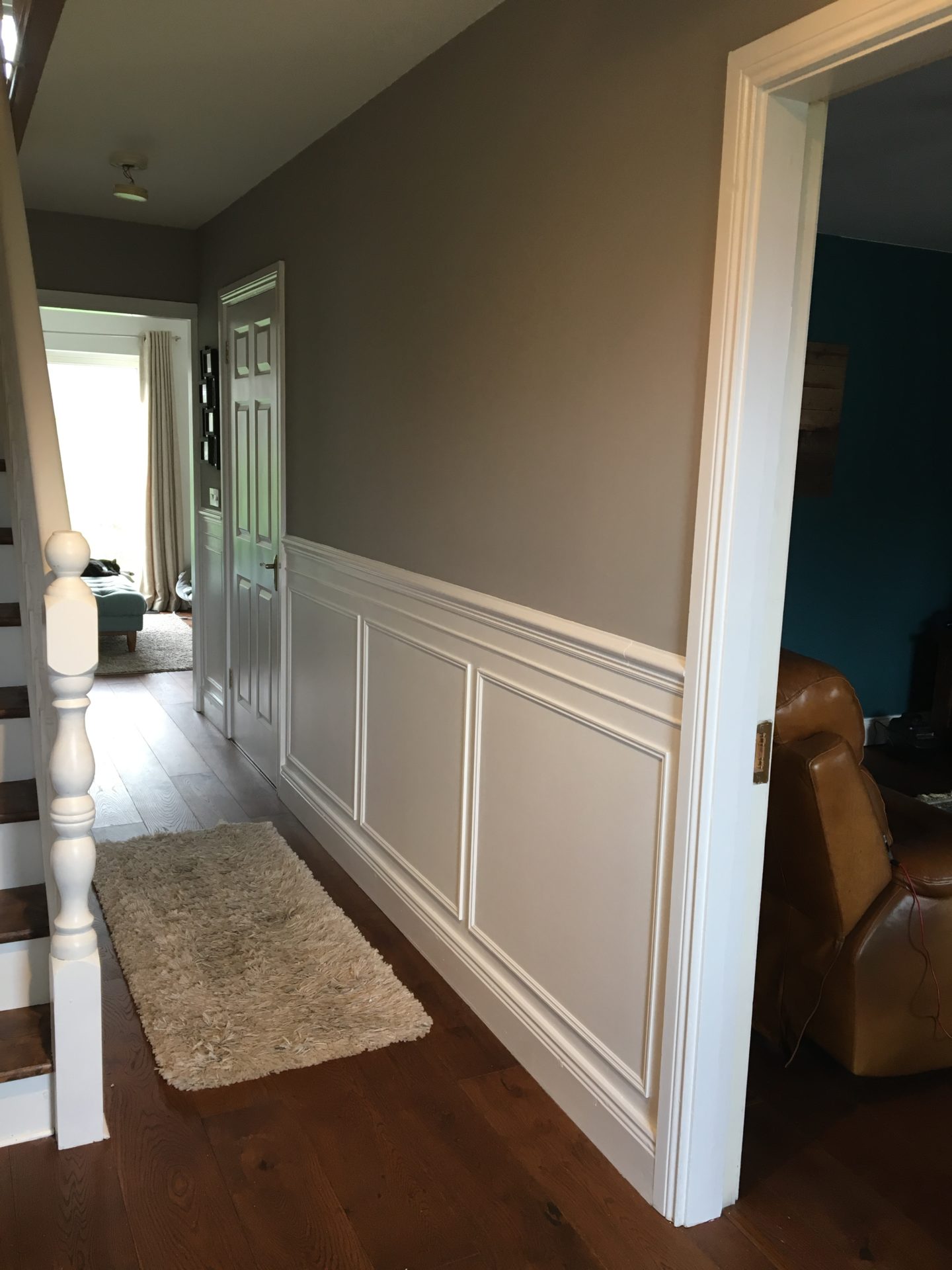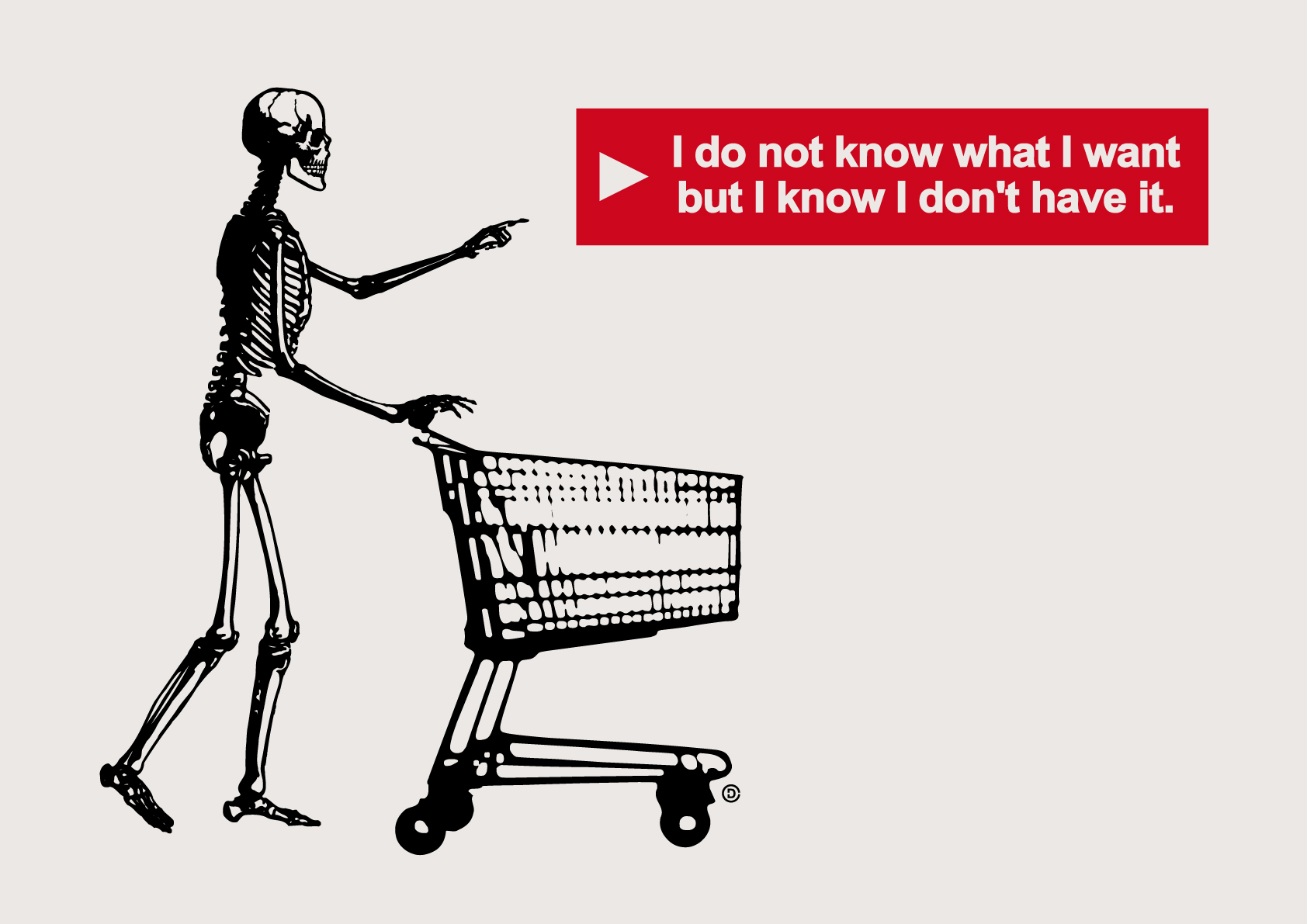Making your way to financial independence can seem daunting, especially as so many people live paycheck to paycheck – I couldn’t find stats on Ireland in particular but apparently 33% of the States lives paycheck to paycheck – it’s probably not far off here too. Thinking about putting away 1,000 – 3,000€/month after expenses seems unfathomable for most but if financial independence is something you want to achieve – one of the first things you need to do is to get your spending in check.
This does not mean you need to live a deprived lifestyle, but you do need to start looking at money differently in order to prioritise the money you are spending now. You need to see how saving now can mean more freedom later and possibly not even too much later if you look into things like mini-retirements once you get a bit of money saved up. Once you see things differently, and start to see some of the benefits of having spare money around, you will not miss the extra spending you were doing.
One bit of recommended viewing that helped me wake up to my spending is “The Story of Stuff” – it highlights how a linear consumerist economy was purposely designed to kick start the economy after the depression and hasn’t stopped since – until then people didn’t buy like they do today and national happiness average was much higher!
Now almost every ad tells us that we aren’t good enough or our lives would be so much better if we had their product – so we go to work to buy these items then go home and watch TV or surf the web and get told that something else is the key to our happiness instead – we are on an endless hamster wheel of buying stuff to make us happy.
The below extract from the minimalist guide Simplify by Joshua Becker hit home:
“Realize possessions do not equal joy. As a part of my full-time job, I frequently take adults and students to third-world environments. I have taken enough trips over the years that I can predict what the emotional response is going to be in the life of somebody who has never seen life outside of the established, consumer-driven, American culture where I live. They will inevitably have three emotions at some point during the trip:
- They will be shocked that people with so little can be so joyful.
- They will wish that they enjoyed life as much as the people they meet.
- They will say that they are blessed to live in America and own so many possessions.
The reflective ones will connect the dots and realize the foolishness of their third statement as soon as they say it out loud. Others will repeat the same three emotions over and over again. Studies have shown over and over again that “possessions” and “joy” are not equal (for example, America ranks #1 in rate of depression).
The unfortunate truth is, we have equated possessions with joy for so long that even when the evidence is right in front of our faces, we don’t recognize it.”
Living beneath your means and not “keeping up with the Joneses” are also a large part of being minimalist which also feeds into the financial independence ethos of not buying stuff you don’t need. I am content with what I have the vast majority of the time – I go for very long periods of not buying anything – one time when I was still working I misplaced my wallet and did not realise for 2 weeks – the girls at work were astonished that I went 2 weeks without putting my hand in my pocket (Mr. MoneyHacker does the groceries, I had gas in the car, I had money on my lunch card, I stayed in on the weekends and played video games or watched movies – that was all I needed).
So how do I stay content, avoid being convinced to buy more stuff and cut down on spending?
Don’t watch ads/read magazines
We rarely watch traditional tv, instead it’s Netflix or movies. You could also record shows and skip the ads if you have that feature. Not exposing yourself to ads keeps you more content with what you have. Magazines are mainly ads telling us to buy more, limit exposure to them or cut them out altogether.
Unsubscribe from/unfollow things that tempt you to spend
I used to be subscribed to all kinds of emails for gadgets and clothes etc that would tempt me with sales every week. I didn’t realise how much of an effect these had on me until one day I decided to unsubscribe. I no longer get tempted and nearly forget about those things until I actually need something.
Use ad-blocker
Of course Facebook, Instagram and everything else online has targeted ads but with the ad blocker extension there aren’t too many and they are easily scrolled past. This extension makes internet browsing SO much less cluttered, although it’s free I encourage donating to support those who made it.
Calculate how much of your life you are exchanging for the item
Translating the cost of items into the amount of time you have to work for them often helps to put things into perspective.
The cost of anything is the amount of life you are willing to exchange for it ~ Henry David Thoreau
I use my net salary for this rather than the gross so if I’m buying a new laptop it may take a week’s wages to pay for it but I will use it everyday for 3-4 years so is well worth the cost. On the other hand a brand new car may cost 1 to 2 full years of my life/time away from my family and is not something I am willing to exchange. Another thing to look at is, if you are in the habit of shopping for fun, figure out how many days in the last week you worked to buy what you are buying that weekend. If it’s 1-2 days, think instead that, if you can learn to break that habit and save the money instead, eventually you could work 3 day weeks for the same lifestyle without the weekend shopping.
Don’t increase your living costs as your pay increases
As you get older you gain experience and earn more year on year, this does not mean you should spend more, get a nicer car, get a bigger house. If you get a promotion or bonus, try not to increase your living costs instead stick with your current spending and save or invest the rest.
Don’t go shopping for fun
We rarely go shopping for the sake of it (usually limited to once a year around Christmas) and in the last few years we have even cut down on that and spend on holidays instead – if we go into town it’s for a specific purpose and don’t veer from that. I recently reviewed our expenses for the previous year and the only new clothes I bought were 2 pair of maternity pants, a maternity bathing suit and 6 nursing tops. I’ve gotten so out of the habit of shopping that I did not even notice and was shocked I had not spent money on clothes without even trying.
Don’t buy things on the spot
If you are out shopping or shopping online and see something you absolutely must have or think might be useful don’t buy it, give it a day or two and if you still want it then get it. More often than not the feeling passes. Also if you have done without it to date you probably don’t need it (things like kitchen gadgets are a prime example).
Shop around
If you’ve seen something you MUST have, do your research, read reviews (amazon is a great place for reviews) and ensure it is the best option available for the best price. Websites like www.pricespy.ie are brilliant for comparison shopping when you have something specific in mind. Once you find which shop has the best price, you may find that it is too far away, luckily many shops have price matching schemes so if there is a closer shop that stocks the item, ring them and ask if they price match against the other shop.
Don’t buy things just because they are on sale
If you see something on sale and you think it is something you might make use of – don’t buy it. Paying 50% for something is still paying 100% more than if you didn’t buy it at all.
Shop with a list and stick to it
Whether it’s food, clothes or anything else, shop with a list and stick to it. Anything extra usually results in waste (for food anyway) or excess (and wasted money). Only shop when you need (not want) something.
Before buying: Ask yourself if you can borrow or rent it
If you think of things like power drills, they are used for something like 12 minutes across their lifetime and yet everyone that uses one has their own. The simple option to rent from your local hardware store is easily available but more and more peer to peer borrow/rent options are opening up from things like clothes (check out NuWardrobe or local swap shops), to electronics, camping gear, and power tools (check out trylio or look for a local “Library of Things”) and obviously books from your local library. Did you know that if the library does not have a book you’re looking for they will order it for you? I recently discovered that the library has cardboard baby books (something second hand shops don’t have) and have since been going once a week to get all new books for my wee lad to look at (and save my sanity from re-reading the same books over and over!)
Before buying: Ask yourself if you can get if free or second hand
Check for local freecycle or second hand websites (DoneDeal, Adverts.ie or buy and sell facebook groups) and check them first when you’re looking for something in particular, if they don’t have it you can also check ebay and click the “used” filter.
Drive an old car
The vast majority of people I know have newer cars and have car payments. I always try to buy older but reliable cars (like 10 years old old). I’ve had my ’05 Yaris for 4 years and have only had routine maintenance (knocks on wood). I paid 4,500€ for it in cash and pay little in petrol. This approach has saved thousands over the years.
Before buying: Ask yourself if you could make it yourself
I’m finding out that more and more things are within my capabilities to make/do myself that I never would have considered before. When I started trying to cut down on general waste and trying to get rid of plastic and chemicals from our home, I learned that it’s actually super simple to make a lot of things from cleaning products to food products that I never would have considered making before. It’s been a bit hit and miss in terms of finding recipes that are effective but as it was a hobby of mine I didn’t mind too much. I will post some time on some of the more effective simple things I have made but to give you an idea you can clean most of your house with baking soda and vinegar and things like gluten free quiche bases, apple sauce, gluten free wraps etc are super simple (and tasty) to make.
In terms of bigger projects around the house, I’m always one to try it myself before hiring someone. Things like basic handyman tasks like hanging curtains and painting are things I would do myself (though for the life of me I still haven’t cracked hanging things through concrete which most houses are made of in Ireland). That said, once the baby came along we eventually outsourced the painting while we were away on holiday as we didn’t want to expose the baby to the fumes, nor did we have the energy in the early days.
We even took on a few bigger DIY projects like refinishing our stairs and applying fake paneling/wainscoting to the hallway (one of my favourite features of the house).



For bigger furniture items like our dining booth, upholstered ottoman and headboard, I had every intention to try and make them myself but five days after getting the keys to our house I discovered I was pregnant so some of those tasks were no longer feasible. That said, a great series for simple DIY projects around the house is The Weekender on YouTube. A new shared woodworking workshop has opened up in Cork recently where you can bring in a project and their experienced furniture makers will guide you on what supplies you need and how to make it and you can use their workbenches and tools. They have an offer on of 50€ for 2 Saturdays of 10am-2pm for this service.
Before replacing: Ask yourself if it can be repaired
Repairing something is often cheaper than replacing (unfortunately not true for some electronics), if you have a hard to find piece check amazon or ebay. Check with local repair shops for prices. Some communities are starting pop up repair cafe’s where people can volunteer to repair things for free and show people how to do it themselves (check out Repair Cafe Ireland for upcoming events near you).
When doing renovations always buy a few more floor boards/wall tiles as those usually get discontinued and you’ll want a few spare for replacing over the years.
When you do buy, buy quality
If something is cheap it’s usually for a reason – it won’t last. That’s not to say that expensive designer things will last either (as some are even made in the same factories as non-designer items) but if you do your research and read reviews you can suss out if something is quality. Also if the company provides lifetime warranties you can be pretty sure they are willing to stand over the quality (companies like JanSport backpacks and Darn tough socks have unconditional warranties where they either repair or replace even if you damaged it yourself or bought them second hand) .
If you buy something cheap it’s more attainable right now but will cost you more over the lifetime if you have to repair or buy another one if the cost of repair is higher than getting a new one.
Don’t upgrade your phone every year or two
Just because your phone provider says you’re entitled to an upgrade doesn’t mean you’re getting a deal, what they are actually doing is tying you into a longer contract at a higher price. If you can afford to buy outright or buy second hand you will get a cheaper monthly phone plan with more flexibility to shop around. I bought my phone outright and now have a monthly plan for 10€ for 6 months and 20€ thereafter for 250 minutes, 250 texts and 30GB of data. I try to keep my phone for at least 3 years or until Apple slows down the older models and they become unusable. When you are done with the phone, sell it (I got 100€ for my last 3 year old iPhone) or make sure to recycle it for valuable hard to mine components to keep as much out of the landfill as possible.
Bonus: Unplug
Better yet, unplug altogether or at least cut back (something I still need to try). There is a good section in the Zero Waste Home book on digital detox.
Small extract here:
“There is such a thing as being too connected. Overusing digital devices is not only environmentally draining (requiring the latest electronics and massive server farms running nonstop to keep trivial pieces of information available), it can also be detrimental on a human level. It distracts us from living in the moment, from enjoying real life; it discourages person-to-person contact and face-to-face connections; it can expose our every move and steal our privacy. Notably, nonstop entertainment robs us of alone time, crucial for independent thinking, appreciation, and gratitude—and maybe even happiness.”
Side note on this: Some of my most productive and innovative thinking, especially around finances, in the last year has been while I’m nursing my baby, I’m fully awake in a dark quiet room with nothing to distract me. Instead of trying to get out of there as soon as possible, it’s actually been a great mindfulness practice that I hope to continue even once I’m done nursing.
“While social media can be a useful business marketing tool, I found that on a personal level it made me feel unfulfilled and discouraged with my life. Sometimes I felt as if I were involved in an unspoken contest I was destined to lose. My “friends” were more popular than I could ever be, with more tweets, more achievements, and more expertise. Social media made me revisit the worst insecurities of my high school days that I thought I had buried twenty years ago.”
Bea’s steps to consider trying
- “Delete personal social media accounts; I kept business ones that provide specific benefits. I also limit postings to the essential, and synchronize accounts for maximum automation.
- Keep a list of web-related tasks and block Internet time for them, to avoid sidetracking and aimless surfing.
- Turn off my cell phone when I work and use Google Voice to send voice mail transcripts to my email inbox.
- Set times to check emails thrice per day (instead of all day or every time they come in), concisely reply only to those that require a response. I always strive for an empty inbox and use it as a to-do list: Once an item has been acted upon, I file or delete it.
- Keep my computer desktop clear, and streamline personal folders and my favorites on a regular basis.
- Work in an inspiring setting and sometimes escape Internet access. My favourite place to work is probably my deck, where procrastination is limited to observing nature: squirrels leaping about in the oaks or a hummingbird buzzing around our Meyer lemon buds. But when I approach a writing deadline and am striving for maximum productivity, I have found that I work best in cafés or parks, where my landline does not ring and Wi-Fi is not set.“
All that said, I totally understand the feeling of retail therapy and succumb to it myself from time to time however, the feeling of having a cushion to fall back on, not wondering if my direct debits are going to fail and counting the hours to my next paycheck are well worth the very short term high of buying something new – and actually – buying something used has essentially the same effect as it’s new to you.
What about you? What are some of the ways you avoid spending money unnecessarily?
